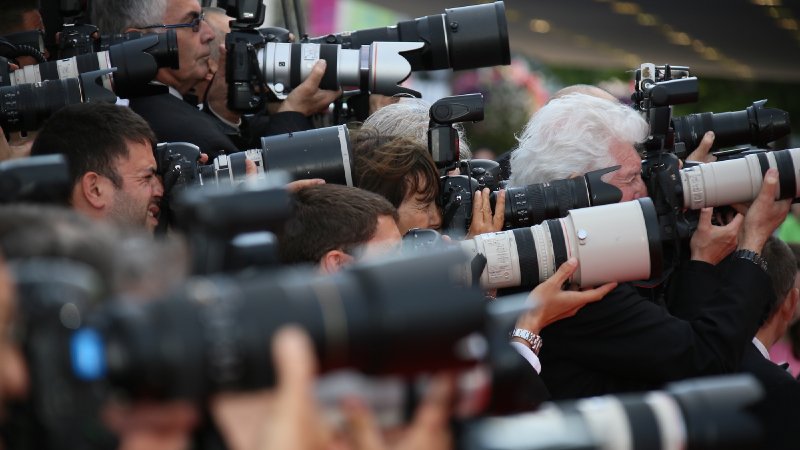
-
HOME
-
WHAT IS STANDOur Mission Our Values Our Help Contact
-
WHAT WE FIGHT FORReligious Freedom Religious Literacy Equality & Human Rights Inclusion & Respect Free Speech Responsible Journalism Corporate Accountability
-
RESOURCESExpert Studies Landmark Decisions White Papers FAQs David Miscavige Religious Freedom Resource Center Freedom of Religion & Human Rights Topic Index Priest-Penitent Privilege Islamophobia
-
HATE MONITORBiased Media Propagandists Hatemongers False Experts Hate Monitor Blog
-
NEWSROOMNews Media Watch Videos Blog
-
TAKE ACTIONCombat Hate & Discrimination Champion Freedom of Religion Demand Accountability
The Accidental Bigot
A bigot’s a bad thing to be. But, theoretically, it could happen to any one of us.
For many years (and in what feels like another lifetime), I worked in the film business. Anyone familiar with that industry knows it involves arduous, long days and requires plenty of patience. There can be a lot of downtime depending on what the job, the setup, rehearsals and the shooting schedule. As a result, crew members do a lot of talking amongst themselves, and form bonds of friendship and respect. I liked and admired so many of my colleagues because they were all industrious and hard-working. Everyone had an interesting story to tell.

Some crew occasionally talked vehemently about politics or religion, unintentionally offending others. But having been raised by a Southern mom who read Amy Vanderbilt—the original Amy Vanderbilt—and was convinced that Ann Landers’ columns made good bedtime stories, I was averse to getting riled up on the set and accidentally insulting someone. Most others were like me and preferred pleasant conversations, and the bond we shared gave the impression we were all on the same page politically, morally and socially. But we were not. What we had in common was the ability to walk on a set and get the job done—along with sleep deprivation. We otherwise returned home to an astonishing array of lifestyles and were incredibly diverse in every other way.
I, for example, am a Scientologist, and was one of the few in my niche of the film industry at the time.
On one occasion I was talking and laughing with three other female crew members. We were the best of buds after having worked together for the same production company on and off for years. We gave each other warm hugs, shared lunches and helped one another on the set too.

Imagine my surprise when one of my “friends” suddenly launched into a tirade ridiculing and disparaging my religion. She did it in such an offhand way, expecting us to totally agree with her.
I looked at her and, with a playful, wry smile, said: “I guess you didn’t know I am a Scientologist.”
She backpedaled in a crazy moon-walking, reverse-bowing shuffle. She tried to take back the insult, apologized profusely, and felt embarrassed and terrible. I even felt bad for her because I knew she wasn’t trying to be a bigot. And yet there she was… being a bigot.
Why?
She had just parroted back something she had heard on the radio or read in “the news.” She hadn’t inspected the facts, or done her own homework. She just took it in and blurted it out at the opportune moment as a little conversational firecracker, to be interesting and seem au courant.
Well it was an unfortunate moment and her embarrassment was what told me she didn’t really mean it. A true bigot would have taken the opportunity to dress me down and coerce the group into turning against me. A true bigot would have stuck by the lies she’d thoughtlessly repeated.
My friend was an “accidental bigot.”
She tried to take back the insult, apologized profusely, and felt embarrassed and terrible. I even felt badly for her because I knew she wasn’t trying to be a bigot. And yet there she was… being a bigot.
She found out that day that firsthand experience is more reliable than something you read or hear in the media. When you know someone of a particular faith or creed or group you can ask them what they think. Firsthand knowledge is always more powerful than secondhand rumors. If you want to know about another religion, read its scriptures yourself. If you meet someone of another faith, talk to them, and look into their eyes and see the goodness of their soul.
Bigotry is learned, either from a parent, a school, friends or the media. Most people don’t want to be bigots. So how do you avoid becoming an “accidental” one? Embrace religious freedom. Period. Give the other guy some breathing room. Think before you speak. And ask yourself if what you are about to say would be hurtful if the tables were turned and someone else was saying it back to you.
It doesn’t sell newspapers, it doesn’t get you on the talk shows, but it does create a culture of tolerance.
Photo by: Peter Titmuss / Shutterstock.com









